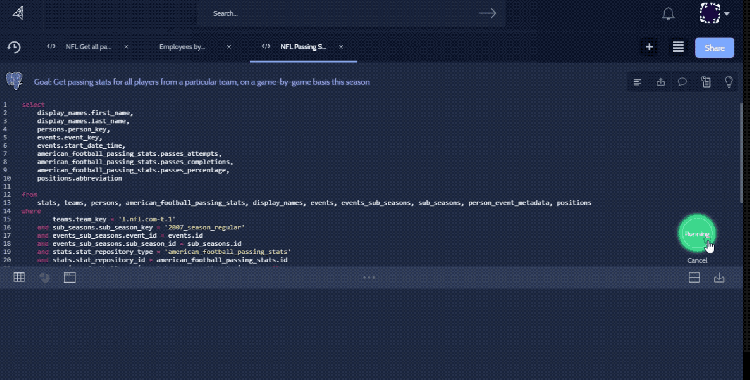Watch all the Transform 2020 sessions on-demand here.
Data management is time-consuming — particularly when you’re dealing with information across multiple cloud services. The typical enterprise uses about 91 marketing cloud solutions, and they’re going underutilized; they pay an average of 36 percent more for cloud services than they actually need to.
That’s why Adam Weinstein, Jason McGhee, and Patrick Farrell — veterans of companies such as LinkedIn, Salesforce, and Pandora — cofounded Cursor, an analytics platform that enables companies to take full advantage of the disparate apps they’re already paying for. The San Francisco startup, which emerged from stealth last year with $2 million in seed funding from Toba Capital and other investors, counts employees at Apple, Atlassian, Slack, and more than 500 other organizations among its customers.
This week, it’s launching a new offering — Cursor Enterprise — tailored to fit the needs of large organizations.
“Cursor Enterprise is designed to meet the needs of the world’s largest data-driven organizations with a host of new features, spearheaded by the use of machine learning to bring relevant data to you, faster,” Weinstein said. “We’ve been listening to … feedback and have been hard at work on new features that will allow you (and large-scale organizations everywhere) to not only better manage your data, but extract more actionable insights from it.”
June 5th: The AI Audit in NYC
Join us next week in NYC to engage with top executive leaders, delving into strategies for auditing AI models to ensure fairness, optimal performance, and ethical compliance across diverse organizations. Secure your attendance for this exclusive invite-only event.
From a user perspective, Cursor behaves like a search engine. Queries pull up a list of results compiled from connected services to a segment of SQL, to which people can attach comments and tags. The idea is to cut down on the amount of time folks spend pilfering through cloud folders or pinging colleagues for files and code.
So what differentiates Cursor Enterprise, which operates on a paid software-as-a-service model, from Cursor’s free plan? For starters, there’s a new centralized management dashboard that lets admins impose user and content access policies, as well as an enhanced tracking tool built with compliance in mind. Also in tow is an AI-powered recommendation engine that surfaces files that might otherwise fly under the radar, and a data catalog that indexes files from business intelligence platforms (like Tableau, Power BI, and Looker), on-premises databases, and content management systems.
The new arrivals join Cursor’s existing suite of features. Subscribers get universal search across all connected services, real-time automated backups of files undergoing edits, and automatic code formatting and verification, in addition to built-in Q&A tools that connect users with domain experts within their organization.
“It’s designed to help folks in the data weeds,” Weinstein told VentureBeat in a phone interview. “[The platform can] identity [files and code] that can be can be reused [and] provide insights.”
Cursor Enterprise is available broadly today, and will gain new features in the weeks ahead. Python Notebooks support is on the way, as is metric tracking and integrations with ElasticSearch, BigQuery, Microsoft Dynamics, and more.
Cursor’s in a profitable market segment. The cloud infrastructure services market is forecast to be worth $81.29 billion by 2023, according to MarketsandMarkets.


